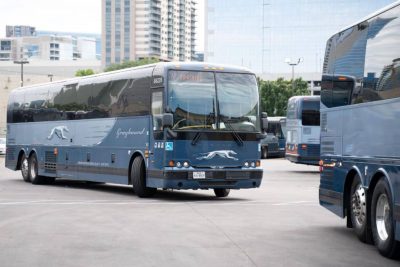Shutdown of Greyhound Canada Will Leave Canadians Stranded, More Than 400 Workers Without a Job
Lack of COVID-19 Federal Relief, Deregulation Bill final nails in the coffin

All Global Research articles can be read in 51 languages by activating the “Translate Website” drop down menu on the top banner of our home page (Desktop version).
Visit and follow us on Instagram at @crg_globalresearch.
***
Thousands of Canadians will be left stranded, and more than 400 workers are left without jobs after Greyhound Canada ceased operations today says the Amalgamated Transit Union (ATU).
“This is devastating news for the thousands of Canadians, especially those from indigenous and First Nations communities, who have relied on Greyhound for transportation. Seniors won’t be able to visit their families, students won’t be able to get to school, and many others will be left stranded,” said ATU International President John Costa about the closure. “More than 400 workers including 305 of my brothers and sisters, are now out of a job. This adds insult to injury to these workers and their families already impacted by the pandemic and the Trudeau government and the Progressive Conservative Party MPPs are to blame. They not only failed to provide COVID-19 relief for this hard-hit industry but ignored calls for many years for critical federal funding of Greyhound Canada and the entire struggling intercity bus industry and to stop the ruinous deregulation of intercity bus lines.”
Due to the COVID-19 pandemic, Greyhound Canada had already suspended their services nationwide in 2020. The company claims the shutdown was due to a lack of federal COVID relief funding and omnibus Bill 213 that proposed deregulation of the intercity bus industry which if implemented as planned on July 1, 2021, will allow anyone to start an intercity bus company, cherry-pick profitable routes while bypassing rural and poor communities, and abolish safety requirements for the industry.
This comes only a few years after Western Greyhound Canada shutdown in 2018, citing a lack of financial sustainability in the face of deregulation and after the government reneged on a promise to provide funding to deal with the crisis.
In the U.S, the ATU secured $2 billion for the motor coach and school bus industries under the Coronavirus Economic Relief for Transportation Services (CERTS) Act. More than 300 Greyhound workers in the U.S. are still laid off or furloughed.
“For many years, Greyhound Canada has been the only form of transportation to connect people living in small towns across Canada with larger cities to provide opportunities for jobs, access to health care and other critical services” Costa continued. “In the U.S., we were able to secure critical relief funding for the motor coach industry that has been devastated by the pandemic and we continue to push for more. We call on the Trudeau government to do the same to save this lifeline and livelihood for thousands of Canadians.”
*
Note to readers: Please click the share buttons above or below. Follow us on Instagram, @crg_globalresearch. Forward this article to your email lists. Crosspost on your blog site, internet forums. etc.

